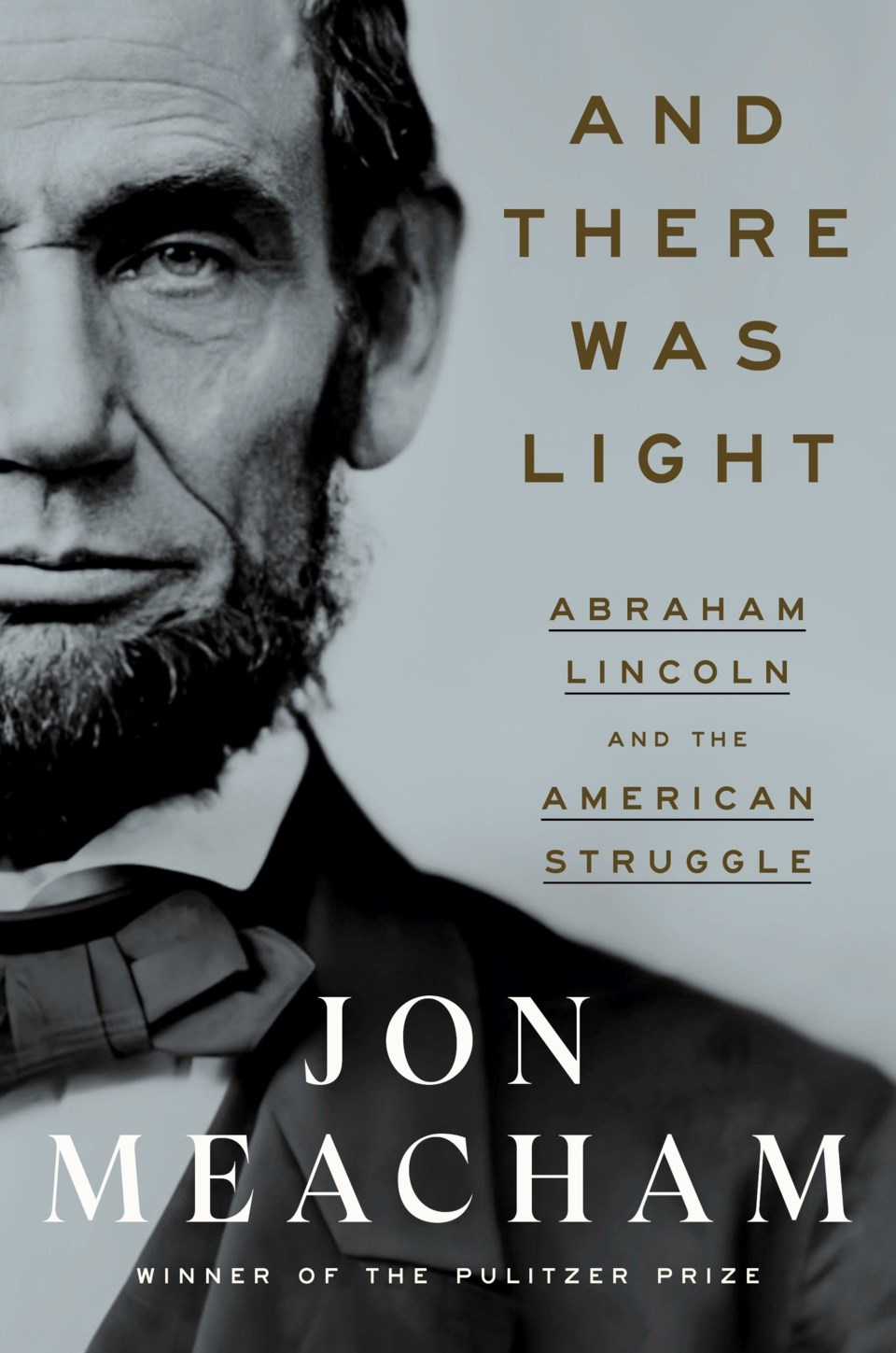“And There Was Light: Abraham Lincoln and the American Struggle” by Jon Meacham (Random House)
Fun fact: Feb. 12, 1809, is the birthdate for both Abraham Lincoln and Charles Darwin. While we tend to contemplate “The Great Emancipator” as fully formed well before he became the 16th president, his moral perspectives and political goals developed in a gradual process more akin to Darwin’s theories.
Jon Meacham’s excellent new biography, “And There Was Light: Abraham Lincoln and the American Struggle,” illuminates how Lincoln’s personal growth and travails enabled him to lead a nation along a fitful evolution toward freedom despite a catastrophic rebellion that denied it. Fueling the national disaster was the “Big Lie” of Lincoln’s day — that slavery was a justifiable institution.
Meacham does not portray Lincoln’s backstory as mere iconography — the log cabin, the backwoods education, the rail splitting. Rather, this account of his hardscrabble youth is less an any-boy-can-be-president morality tale than a foundation of Lincoln’s personal values and empathy informed by crushing poverty and loss. It is little wonder that Lincoln sought to deliver more fairness in an unfair world.
The light that powered this desire was the gift of literacy acquired in what Lincoln called “A.B.C. schools” and any books he could hungrily consume thereafter. The darkness of early 19th century America was vividly embodied by enslaved Blacks herded in chains down his native Kentucky roads.
At 23, Lincoln formally entered the political arena running for office in Illinois to feed his great ambition “of being truly esteemed of my fellow men, by rendering myself worthy of their esteem.” Meacham expertly peels back the historic to reveal the familiar in his coverage of the swirl of politics, largely unchanged to this day.
The author girds his analysis with a comprehensive survey of the variety of social, political and theological writings that influenced Lincoln and resonate across his career. Keenly attuned to public opinion, Lincoln recognized both in himself and the entire nation two realities — anti-Black prejudice and a passionate desire in the North to abolish slavery. It was the same empathy that recoiled from the brutal practice of slavery that also connected him to the humanity of those who supported it.
This led to Lincoln’s finely calibrated debates with Stephen A. Douglas in which he called for the status quo limiting slavery unto its eventual end, yet hewed to the stance of abolitionist supporters who otherwise resisted a multiracial, egalitarian society. Lincoln added that slave owners’ unearned wealth created a decidedly un-American class system that disadvantaged poor whites. Douglas was eventually sent to the U.S. Senate to advocate slavery’s expansion and the continuation of unfettered white supremacy.
The stage set for his White House candidacy under the Republican Party banner, Lincoln won in 1860 with only a plurality of the vote. Before taking office, he grew his trademark whiskers, watched as the South seceded, then took command committed to his official duty to restore the Union, not his personal wish that all men everywhere be made free.
Buffeted by Confederate victories, impatient abolitionists and South-sympathizing Democrats, all while fearing the loss of the border states, Lincoln’s first term was the American presidency’s greatest tightrope act: incremental policy advances balanced by principle. The victory at Antietam in September 1862 steadied the North, and Lincoln issued his Emancipation Proclamation to add explicitly the cause of freedom to the preservation of the Union.
Meacham details the messy political caveats that necessarily riddle the more convenient, more heroic Northern narrative. Emancipation was limited. Some states in the northwest sued for peace allowing for the expansion of slavery or even the expulsion of the New England states. A draft to enlarge the army led to rioting. By 1864, fellow Republicans were advising Lincoln to moderate his abolitionist views to get reelected. He convinced them that abandoning emancipation would be worse than losing the presidency.
Ultimately, it was not virtue but victory — the fall of Atlanta in September 1864 turned Northern skeptics into hawks — that delivered Lincoln a second term. Meacham reveals in his examination of the second inaugural address how Lincoln repurposed the Psalms and the Gospels to capture the moral essence of “this mighty scourge” in which “the prayers of both (sides) could not be answered.” The war, and slavery with it, finally ended only to be tragically punctuated by his assassination.
An admirer across the Atlantic wrote before the 1864 election that supporters in England observed in Lincoln’s career “a grand simplicity of purpose and patriotism which knows no change and which does not falter.” Meacham’s fine account of America’s greatest president delivers a close-up that captures — wart and all — why Lincoln’s political sensibilities and moral vision were, like the Union itself, indivisible.
___
Douglass K. Daniel is the author of “Anne Bancroft: A Life” (University Press of Kentucky).
Douglass K. Daniel, The Associated Press



